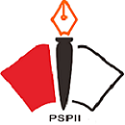Learning Management to Stimulate Critical Thinking in Islamic Religious Education Study Program Students
Abstract
This research is motivated by the impact of learning management carried out by lecturers on students to think critically. because critical thinking is very necessary in everyday life. Critical thinking is a way for students to have an attitude of deeply about various things and problems that are different within their scope, which attitude involves activities in solving problems, making decisions, analyzing assumptions and organizing strategies and tactics. By having critical thinking skills, students can understand how to face, analyze and solve problems in facing challenges in the era of industrial revolution.
Critical thinking learning management for students is effective in improving students' abilities in mastering concepts and subject matter as well as helping students' abilities in analyzing, interpreting and evaluating and being able to convey logical and systematic data presentations. Critical thinking learning management for students supports students' ability to know their own abilities, can interpret problems critically, strengthens students in searching for new information that was not previously known, in focusing a research, the researcher provides the formulation and objectives of the problem that will be reviewed in this research, namely: what lecturers do in the Islamic religious education study program to improve the critical thinking of students in the Islamic religious education study program. This research is included in descriptive qualitative research, with a qualitative approach. The results of the research show that lecturers in the Islamic religious education study program carry out 3 strategies in improving the critical thinking of students in the Islamic religious education study program: First, develop students' critical thinking skills in the aspect of identifying using methods, models and learning approaches. The methods used are lecture, discussion, question and answer, group assignment, project, collaborative, and inquiry methods by carrying out activities where students provide information to fellow students by explaining verbally and also through presentations from students. Second, the strategy for developing students' critical thinking skills in the analytical aspect is that students are presented with scientific problems and encouraged to analyze the material, then conclude and develop aspects of evaluating the problem, either cross-checking or checking the results of the conclusions. And third, the lecturer's strategy in developing students' critical thinking skills in the Islamic religious education study program in the aspect of evaluating problems.
Full Text:
PDFReferences
Abdullah, A., & Munawwaroh, F. (2024). Problem Based Learning Untuk Meningkatkan Keterampilan Berpikir Kritis Siswa. Jurnal Educatio, 10(1), 155–162.
Fitriyah, I. J., Affriyenni, Y., & Hamimi, E. (2021). Efektifitas Model Pembelajaran Inkuiri Terbimbing untuk Meningkatkan Efektifitas Model Pembelajaran Inkuiri Terbimbing untuk Meningkatkan Kemampuan Bepikir Kritis Mahasiswa. September. https://doi.org/10.35569/biormatika.v7i2.1017
Haryono, A., & Suprijono, A. (2021). Pengaruh Hybrid Learning Dalam Mata Pelajaran Sejarah Terhadap Capaian Berpikir Kritis Siswa Di Sman 1 Lamongan. Avatara, 11(3), 1–11.
Ilmudinulloh, R., & Bustomi, A. (2023). Model Pembelajaran Berbasis Proyek untuk Mengembangkan Kemampuan Model Pembelajaran Berbasis Proyek untuk Mengembangkan Kemampuan Berpikir Kritis Mahasiswa. August. https://doi.org/10.29313/jrjmd.v2i2.1366
Liwaul Liwaul, Mubaroqah, S., Pairin Pairin, & Aris Try Andreas Putra. (2022). Model Pengelolaan Berpikir Kritis Siswa dalam Pembelajaran Pendidikan Agama Islam: Melibatkan Metode Cooperative Learning. Jurnal Pendidikan Agama Islam Al-Thariqah, 7(2), 265–277. https://doi.org/10.25299/al-thariqah.2022.vol7(2).10579
Nadhiroh, S., & Anshori, I. (2017). Implementasi Kurikulum Merdeka Belajar dalam Pengembangan Kemampuan Berfikir Kritis pada Pembelajaran Pendidikan Agama Islam. 4(1), 9–15.
Putri, C. S. (2023). Peran Pembelajaran Berbasis Outdoor dalam Meningkatkan Keterampilan Berpikir Kritis Siswa: Studi Quasi-Eksperimental di Sekolah Menengah Atas di Bandung. Sanskara Pendidikan Dan Pengajaran, 1(02), 68–77. https://doi.org/10.58812/spp.v1i02.113
Santoso, B., Triono, M., & Zulkifli, Z. (2023). Tantangan Pendidikan Islam Menuju Era Society 5.0: Urgensi Pengembangan Berpikir Kritis dalam Pembelajaran PAI di Sekolah Dasar. Jurnal Papeda: Jurnal Publikasi Pendidikan Dasar, 5(1), 54–61. https://doi.org/10.36232/jurnalpendidikandasar.v5i1.2963
Santoso, & Herlina, M. (2020). PENGARUH PEMBELAJARAN PROBLEM BASED INSTRUCTION TERHADAP KEMAMPUAN BERPIKIR KRITIS MAHASISWA PROGRAM STUDI PENDIDIKAN BIOLOGI FKIP UMB. Diklabio: Jurnal Pendidikan Dan Pembelajaran Biologi 4Diklabio: Jurnal Pendidikan Dan Pembelajaran Biologi, 4(1), 65–70.
Saputri, D. A., & Katoningsih, S. (2023). Peran Guru PAUD dalam Menstimulasi Keterampilan Bahasa Anak untuk Berpikir Kritis pada Usia 5-6 Tahun. Jurnal Obsesi : Jurnal Pendidikan Anak Usia Dini, 7(3), 2779–2790. https://doi.org/10.31004/obsesi.v7i3.4353
Wicaksana, D. A., Maulana, C., & Kusumaningrum, Y. (2023). Analisis Kemampuan Berpikir Kritis Mahasiswa dalam Memecahkan Masalah Logika Matematika ditinjau dari Gaya Belajar. Jurnal Serunai Ilmu Pendidikan, 9(2), 393–398.
DOI: http://dx.doi.org/10.24042/002024152005100
Refbacks
- There are currently no refbacks.
Copyright (c) 2024 Al-Tadzkiyyah: Jurnal Pendidikan Islam

This work is licensed under a Creative Commons Attribution 4.0 International License.

Al-Tadzkiyyah: Jurnal Pendidikan Islam is licensed under a Creative Commons Attribution 4.0 International License. Copyright © UIN Raden Intan Lampung. All rights reserved.








